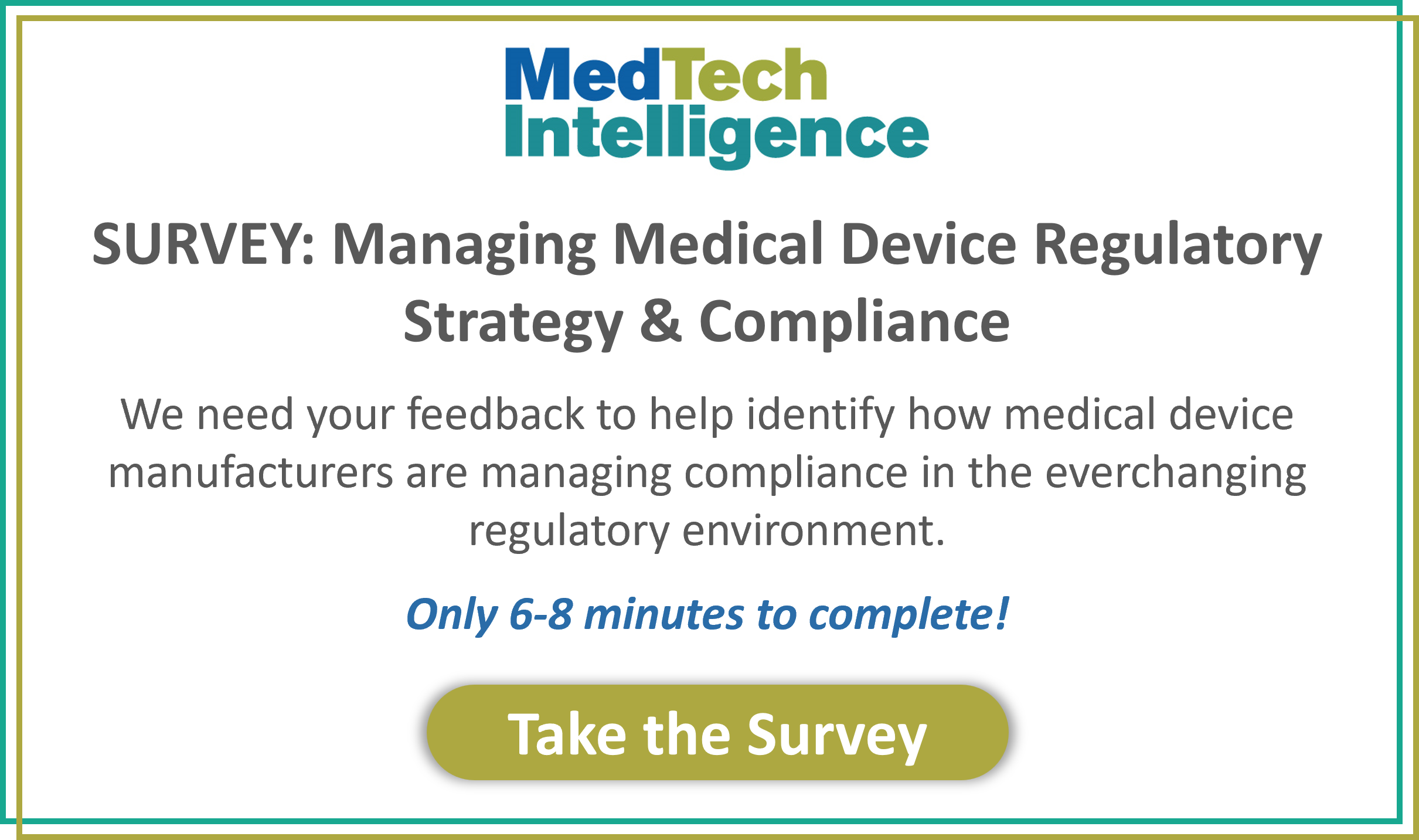In a recent State of ESG In Manufacturing survey, just one third (31%) of respondents reported high confidence in the quality and accuracy of their organization’s supply chain data. That lack of confidence is a harbinger of risks to come, as low confidence in data means knowledge gaps, resulting in lost market access and product recalls, among other penalties.
For medical technology manufacturers in particular, these types of issues can delay FDA and/or notified bodies approval. In addition, mandatory and voluntary product recalls present serious risks to patients and a brand’s reputation.
With environmental, social, and governance (ESG) regulations growing in number and scope, it’s more important than ever that manufacturers thoroughly understand their supply chain and attain clean, high-quality data. Failure to do so could lead to significant risks, including:
Loss of Market Access. Losing market access is a severe consequence that affects revenue and erodes investor and consumer trust. For patients who need your technology to survive and thrive, loss of access can be devastating.
Consider the Uyghur Forced Labor Prevention Act (UFLPA), which effectively restricts goods made with forced labor from the U.S. market. Since June 2022, Customs and Border Protection (CBP) has stopped 2,692 shipments with an estimated value of $817 million USD. Only those with accurate, complete data can overcome UFLPA detentions.
The UFLPA is not the only concern. ESG and product compliance regulations are growing, and their penalties are wide-reaching. For example, per- and polyfluoroalkyl substances (PFAS) are found in a variety of medical products exempt from the US TSCA, including medical technologies, such as catheters, stents, and needles, which are increasingly subject to reporting requirements and restrictions.
An ECHA proposal would restrict the use of over 10,000 PFAS, and only companies with accurate data on product composition and a proactive program to avoid PFAS risks will come out ahead.
Exclusion From Public Procurement & Investment Portfolios. The EU is creating new penalties for businesses that fail to meet ESG due diligence and reporting standards, including fines and exclusion from public procurement and investment portfolios. Where companies fail to provide accurate, quality ESG data, they are now expected to document the resulting risks, their approach to managing these risks, and corresponding efforts to remedy them.
Risky Data is, Well, Risky
So, what is risky data, and how do you identify it within your organization? Following are seven elements that contribute to poor data, which can expose you to noncompliance, and make you less adaptable and less competitive:
- Siloed: Data is incompatible and decentralized
- Stale & Slow: Data is outdated and time-consuming
- Shallow: Data offers limited visibility and relies too heavily on self-reported metrics
- Sloppy: Data is redundant and unreliable
- Simplistic: Data obtained is not actionable
- Submerged: Data is inaccessible
- Silent: Data is incomplete
The Risks Are Growing
The regulatory landscape is expanding in size and scope, creating new requirements and new risks. Checkbox compliance is not enough. As regulations are constantly changing, companies need to be appraised of the latest updates across regulations. Following are some recent and on the horizon regulatory changes happening around the globe.
UFLPA & PVC. While the CBP previously identified tomatoes, polysilicon, apparel, and cotton as high-priority sectors for UFLPA enforcement, PVC has now also been added as a sector of concern. This has significant implications for medical technology, as PVC is used in oxygen masks, examination and surgical gloves, blister packaging, blood vessels for artificial kidneys, catheters, and much more.
The German Supply Chain Due Diligence Act (SCDDA). Enacted in January 2023, the SCDDA requires that German companies investigate their supply chain, identify environmental and human rights risks, and mitigate those risks when found. Noncompliance penalties are steep, including fines, exclusions to public contracts, and lawsuits. These penalties could strike devastating blows to MedTech companies in Germany.
EU Corporate Sustainability Reporting Directive (CSRD). This European directive, which entered into force in January 2023, amends the Non-Financial Reporting Directive (NFRD), creating reporting obligations for 49,000 more companies. The goal of the CSRD is to improve ESG data reliability, relevance, and comparability. Medical technology manufacturers in the EU could be subject to this new directive, given its broad reach and intensive reporting requirements.
SEC Mandatory Climate Disclosure. In March 2021, the U.S. Securities and Exchange Commission (SEC) issued a proposed rule that enhances and standardizes climate impact disclosures from publicly traded companies. There are multiple components of this proposed rule, including a requirement to disclose emissions from upstream and downstream activities (scope three), if material, or if the company’s greenhouse gas targets or goals include scope three emissions.
EU Forced Labor Ban. This European Commission proposal covers all products imported or manufactured in the EU made with forced labor. Authorities would be able to request information from companies and carry out inspections. If authorities found forced labor, they would order the destruction of the products, and prohibit their placement on the market and their exportation. If the authorities cannot gather all the required information, they can make a decision based on available data.
Given the UFLPA’s impact on MedTech shipments, it is not farfetched to infer that the EU Forced Labor Ban would present similar, if not additional, risks.
Corporate Sustainability Due Diligence Directive (CS3D). The proposed CS3D would require every EU member state to enact national legislation focused on corporate sustainability due diligence. This proposal’s scope is daunting and would affect a wide range of companies and manufacturers upon implementation. This national legislation would undoubtedly affect medical technology manufacturers in the EU.
How Clean Data Protects You from Risk
Clearly, manufacturers face many risks in the current global regulatory environment. But how does that relate to the strength of your data? Complying with these regulations and meeting market expectations as they evolve requires robust, clean data that fully captures the breadth of your supply chain impacts, risks, and opportunities. The amount of data required is far too vast to keep track of in Excel spreadsheets. In addition, regulatory complexity is often a struggle requiring expertise that many companies do not have internally. That’s why you cannot, and should not, rely on one approach alone.
Solving the Data Challenge
The best way to increase confidence in the accuracy and quality of your supply chain data is to invest more in your sustainability programs. The best investment strategies to increase the accuracy and quality of your data include:
Supplier Education. If your suppliers don’t understand their requirements and the context surrounding them, you’ll be left with big data gaps. Medical device manufacturers should treat suppliers as allies. Proper education enables your suppliers to give you the data needed to remain compliant.
Reducing Supplier Fatigue. With the investment increase in ESG programs, suppliers have already begun receiving more surveys and corrective action plans from manufacturers asking for ESG data. This sudden influx is creating supplier fatigue, which leads to forgotten surveys and follow-up actions and, ultimately, you not receiving the data you need.
Standardized surveys like the Slavery and Trafficking Risk Template (STRT) and collaboration with other manufacturers using a centralized platform, help streamline the process for suppliers, reducing fatigue and improving program outcomes.
Removing the Language Barrier. Given the global nature of supply chains, MedTech suppliers often do not speak the same language as manufacturers. Communicating with suppliers in their preferred language significantly increases your chances of getting reliable data.
It’s Never Too Late to Take the First Step
When asked about sustainability program maturity level, the majority (76%) of respondents to The State of ESG In Manufacturing report had not attained strong sustainability or deep sustainability. That means most respondents were at the beginning stage of the maturity spectrum.
While low maturity presents you with greater risks and makes meeting investor and customer demands more difficult, there is hope. Most manufacturers recognize the need to invest in sustainability and ESG, making low maturity an opportunity. Those that recognize the urgency and have a plan are better positioned than their peers.
It’s never too late to begin your sustainability journey. All you need to do is take the first step.








